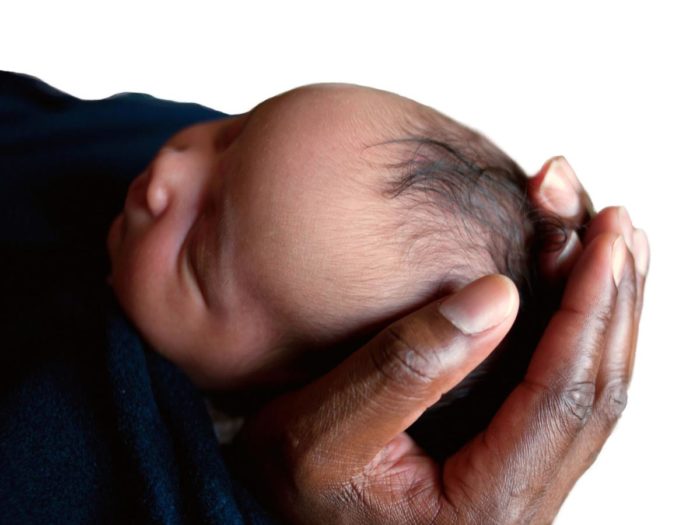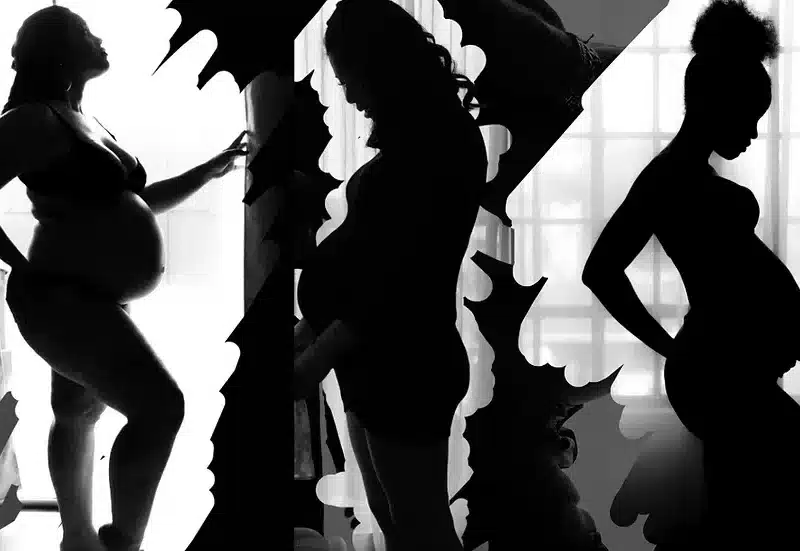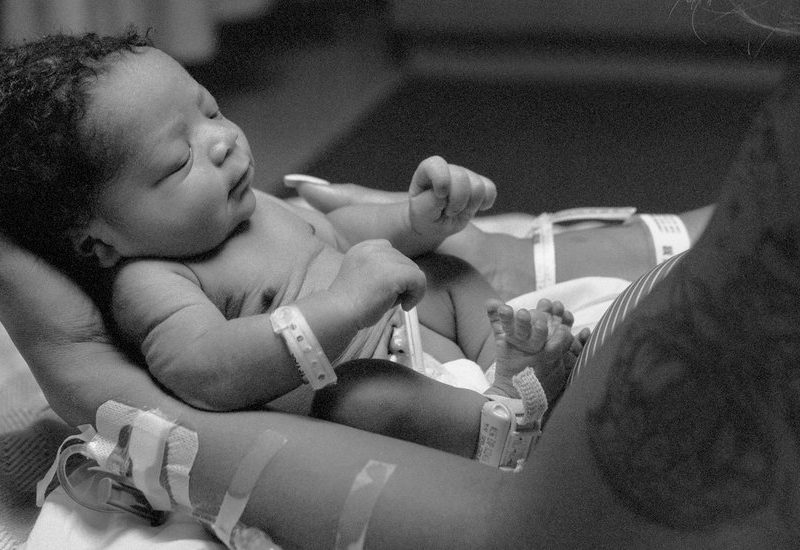
The US has a higher infant mortality rate than any of the 27 wealthiest countries in the world, and infant mortality hits black communities the hardest. In the US, black infants are more than two times more likely to die before their first birthday. According to the CDC, the black infant mortality rate is 11.4 deaths per 1,000 births versus 4.9 deaths for non-Hispanic white infants. And some areas of the country have it worse than others; in prosperous San Francisco, for example, black infants die at a rate of 9.6 per 1,000, compared to a rate of 2.1 per 1,000 for white infants.
A country’s infant mortality rate is a harbinger for how a nation takes care of its most vulnerable, and this data proves that the US is catastrophically failing black babies. This is no time for silence.
As I travel the country speaking professionally, I often meet women who stand up and share their pregnancy, birth or breastfeeding stories, and far too frequently their stories include infant death. But after these women mention their loss, they often move on to the next part of their story as though they didn’t just speak of tragedy. During these times, I often pause all dialogue to make sure everyone in the room takes a moment to acknowledge that a life had been lost. “What was your baby’s name, sis?” I sometimes ask. Other times, women hold that mother’s hand, hug her, or offer condolences. Either way, we cannot continue to speak of infant death as if it is a non-event. Those mothers had hopes and dreams for their children, and their deaths are traumatic events for their family members. Yet, instead of finding comfort, far too many black families encounter a callous system and culture that is socially unprepared to speak about the unspeakable tragedy of infant death.
Meanwhile, death and violence has been generally normalized in the black community. When there are massive shootings in black neighborhoods, mental health support services often don't arrive to assist because, as much of society believes, we are used to living with trauma.
The Black Infant Remembrance Memorial launched online this week, as part of the celebration of national Black Breastfeeding Week, seeks to counter that narrative by providing an online space for acknowledgment, comfort and hope for black families impacted by this country’s black infant mortality crises. Families can create a memorial for their baby with a simple login process and access local grief resources, safely share the story of their loss and accept supportive messages. As the Memorial populates, users will be able to find local families and more local resources. This is important because any attempt at reconciling the nation’s abject failure of black infants must begin with acknowledgment and commemoration.
The Black Infant Remembrance Memorial is the brainchild of Kiddada Green, the executive director of Black Mothers Breastfeeding Association (BMBFA) in Detroit and a co-founder of Black Breastfeeding Week. The Memorial was also developed with two other Black Breastfeeding Week co-founders, Anayah Sangodele-Ayoka and myself. “The online memorial is the first step towards what we hope to transition into a national monument to bring honor and attention to the untimely and preventable deaths of black babies,” says Green.
Green also grew up with a vivid memory of infant loss. “As a young girl every Memorial Day I visited the burial site of my Auntie Sandy, who passed away as an infant years before I was even born,” Green said in an interview. “On that day, I would hold hands with my dad, granddad and uncles uplifting Sandy’s name and memory in prayer. This is how I learned about the importance of commemorating the lives of babies who passed away too soon.” While Green grew up in a family that found its own way to honor the memory of a deceased infant, too many black families are left to their own devices—coping with unprepared systems and inadequate support for their loss.
When Karen Derrico of north Las Vegas lost one of her triplets after they were born prematurely at 28 weeks, she was beset by a torrent of emotions. “When my son Carter died, the hospital wrapped him up and put him in bed with me. Later, he was left with us in an isolette, while I was trying to breastfeed and pump for my other two babies,” said Derrico, who had previously successfully delivered the state’s first black quintuplets. Derrico recalled that as she struggled to breastfeed and pump for the other infants, and her husband took care of their other nine children at home, the hospital simply handed them a paper with the names of funeral homes and told them to make arrangements for someone to get the body, since the hospital didn't have a morgue. “I couldn’t believe the hospital was so unprepared for such an unthinkable tragedy. Families need support, not told to handle their dead baby on their own, ” Derrico says, while adding that later her family released balloons for their infant who died, and created their own ways of memorializing their child. “For decades Black families have tucked their pain away to keep their lives moving and approach normal again. With this memorial, we hope we have created a warm corner they can turn to so that the hopes those babies represented may live on forever,” says Anayah Sangodele-Ayoka, a nurse midwife and co-founder of Black Breastfeeding Week.
The black infant mortality crises will not be solved overnight, however. At every point of analysis, racism and bias in care practices appear. It often starts with black women’s experiences during pregnancy. The high rate of black infant death is directly linked to statistically high poor birth outcomes of black women, which has been linked to racism, bias in maternity care practices and lifelong stress. Far too many black infants are born too small, too sick or too soon, and the condition of their birth becomes a key determining factor in the length of their lives. By entering the world in a more vulnerable state, black babies often receive sub-optimal care
A recent study from Stanford University, for example, showed that black babies in neonatal intensive care units across California received inferior care. The study evaluated nine measures of quality neonatal care including the timeliness of eye examinations and speed of weight gain, which were lower among African-American infants than among white infants. Some physicians have even acknowledged the subtle nuances of bias in their own care practices.
Meanwhile, the effort to end the black infant mortality crises must continue. This begins by telling the truth about the personal, communal and societal impact of this horrific crisis. More anti-racist training is needed in the medical field, which can be accomplished and incorporating technology and patient experiences as a screen for addressing bias. It also means dismantling racist systems and ideas that can literally kill. Every baby deserves the best care and our full support to live past their first birthday, and if we fail to meet that standard, we must not stay silent.
 Kimberly Seals Allers is an award-winning journalist and author of The Big Let Down—How Medicine, Big Business and Feminism Undermine Breastfeeding (St. Martin’s Press). Kimberly writes frequently on the socio-cultural and racial complexities of birth, breastfeeding and motherhood. She is the director of the Maternal and Child Health Communication Collective, a national consortium of over 80 organizations working collectively to shift the narrative of maternal and infant health issues, funded by the W.K. Kellogg Foundation. Learn more at www.KimberlySealsAllers.com. Follow her on Twitter and Instagram @iamKSealsAllers.
Kimberly Seals Allers is an award-winning journalist and author of The Big Let Down—How Medicine, Big Business and Feminism Undermine Breastfeeding (St. Martin’s Press). Kimberly writes frequently on the socio-cultural and racial complexities of birth, breastfeeding and motherhood. She is the director of the Maternal and Child Health Communication Collective, a national consortium of over 80 organizations working collectively to shift the narrative of maternal and infant health issues, funded by the W.K. Kellogg Foundation. Learn more at www.KimberlySealsAllers.com. Follow her on Twitter and Instagram @iamKSealsAllers.


